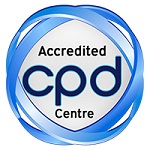Alla Paskovaty
Memorial Sloan Ketterning Cancer Center
USA
Title: State of the art antimicrobial stewardship in immunocompromized hosts
Biography
Biography: Alla Paskovaty
Abstract
Infections cause significant morbidity and mortality in patients with hematologic or solid tumor malignancies. Susceptibility to infection can occur from the malignancy itself, but the primary risk factor is immunosuppression from cancer treatment (e.g., cytotoxic chemotherapy, radiation, combined modality). Administration of broad antimicrobial therapy for empertic treatment of febrile neutropenia is recommended by national guidelines.. This strategy however needs to be balanced against the desire to continue broad-spectrum therapy for prolonged durations during the patient’s hospitalization. Overuse of anitibiotics leads to antimicroibal resistance, higher healthcare costs, and poor health oucomes due to antimicrobial side effects. Immunocompromized paitents are at high risk for being colonized with multidrug resistant organisms, and are at high risk for morbidity and mortality due to such organisms. In addition, cancer patients are at higher risk for drug-related toxicity, due to drug-drug interactions between certain antimicrobials, cancer chemotherapy and supportive therapy. To mitigate the overuse of antibiotics, multidisciplinary approach to atimicriboal steardship needs to be employed. Modern antimicrobial stewardship programs use tactics such as, pre-prescribing review and approval and/or de-escalation: either by changing the antimicrobial agent to something narrower or by stopping an antimicrobial combination or both. To aid in the process, successful stewardship allows collaboration between several departments: Hospital administration, Microbiology, Pharmacy, Departments of Medicine, Oncology and Infection control, Information Technology among a few. Innovative approaches in molecular diagnostics allow antimicrobial stewardship to intevene earlier and with higher success rate. Current technology allows for allerts during prescribing process, allowing for real-time antimicrobial stewardship interventions. Immunocopromized patients present unique challenges for antimicrobial stewardship. This lecture identifies those challenges and presents various strategies that employ up-todate technology and diagnostics to aid in the endavor.

